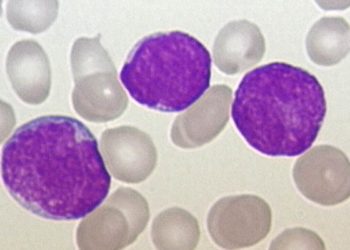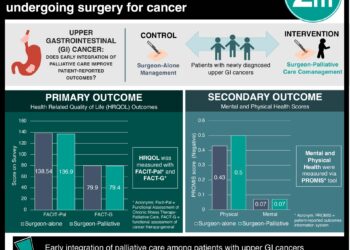The 3 Wishes Project: a valuable program to improve end-of-life care
1. The 3 Wishes Project (3WP), which strives to provide humanistic care and honor the dignity of end-of-life (EOL) patients, was shown to be valuable, transferable, affordable, and sustainable at one year follow-up.
2. In addition to patients and families, hospital staff also benefited from the program through improved camaraderie and increased significance of their work.
Evidence Rating Level: 4 (Below Average)
Study Rundown: The EOL period is often a difficult one for patients, families, and providers alike due to sometimes competing interests of caring for the patient and caring for the person. The 3WP seeks to improve the EOL experience for patients, families, and staff by realizing the wishes of patients and families with the goal of improving relationships and honoring the patient. Previously pioneered at St. Joseph’s Healthcare in Ontario, this study evaluated the value, transferability, affordability, and sustainability of the 3WP in intensive care unit (ICU) settings of multiple hospitals and found that at one-year follow-up, the program positively met all four aspects evaluated and exceeded expectations, especially with regard to value and affordability. This descriptive formative evaluation provided evidence that the 3WP experience and methods could be successfully implemented outside the sites involved in the study to provide benefit to patients, families, and staff at other institutions. Overall, this program was sustainable and provided significant end of life value to patients along with their families, and clinicians along with their respective institutions. Limitations of this study included lack of patient perspectives, questionable generalizability to settings outside the ICU of academic hospitals, and lack of adjustment for cultural differences.
Click to read the study, published today in Annals of Internal Medicine
Relevant Reading: Improving End-of-Life Care in the Intensive Care Unit: Clinicians’ Experiences with the 3 Wishes Project.
In-Depth [survey]: This mixed-methods descriptive formative evaluation enrolled 730 patients between 2017 and 2019 at 4 intensive care units (ICUs) of academic institutions in Ontario (2), California (1), and British Columbia (1). Patients who had withdrawn life-sustaining care or who had a >95% estimated probability of death were included. Those who declined participation were excluded. Patients and families were invited to voice wishes, which were then implemented. Wish categories centered on areas such as the patient, environment, family, and celebrations. Data were collected anonymously about patients and wishes, and via audio recorded interviews about experiences of family members, clinicians, and managers, for a total of 167 participants contributing 80 interviews and 14 focus groups. Interview transcripts were analyzed and coded to determine value, transferability, affordability, and sustainability. The 730 patients raised 3407 wishes, of which 3250 were implemented. Resources used to fulfill wishes included staff, equipment, training, and storage, among others. The 3WP was found to provide value to all categories of interviewees via assisting with bereavement, improving relationships with colleagues and families, and adding value to the institution. Transferability was demonstrated via exceeding enrollment targets, patient requests for 3WP implementation at outside hospitals, and enhanced solidarity among staff. 76.8% of wishes were of no cost; other wishes were quite affordable (mean cost per wish, $5.19; standard deviation, $17.14; mean cost per patient, $23.68; median cost per patient, $6.12). Sustainability was achieved by continued staff engagement, support from managers, funding from hospitals, and outside funding through donations, fundraising, and research grants, resulting in continuation of the project after conclusion of the study in all four hospitals. Limitations include lack of patient interviews, inclusion of only academic ICUs, and lack of special consideration for diverse populations.
Image: PD
©2019 2 Minute Medicine, Inc. All rights reserved. No works may be reproduced without expressed written consent from 2 Minute Medicine, Inc. Inquire about licensing here. No article should be construed as medical advice and is not intended as such by the authors or by 2 Minute Medicine, Inc







